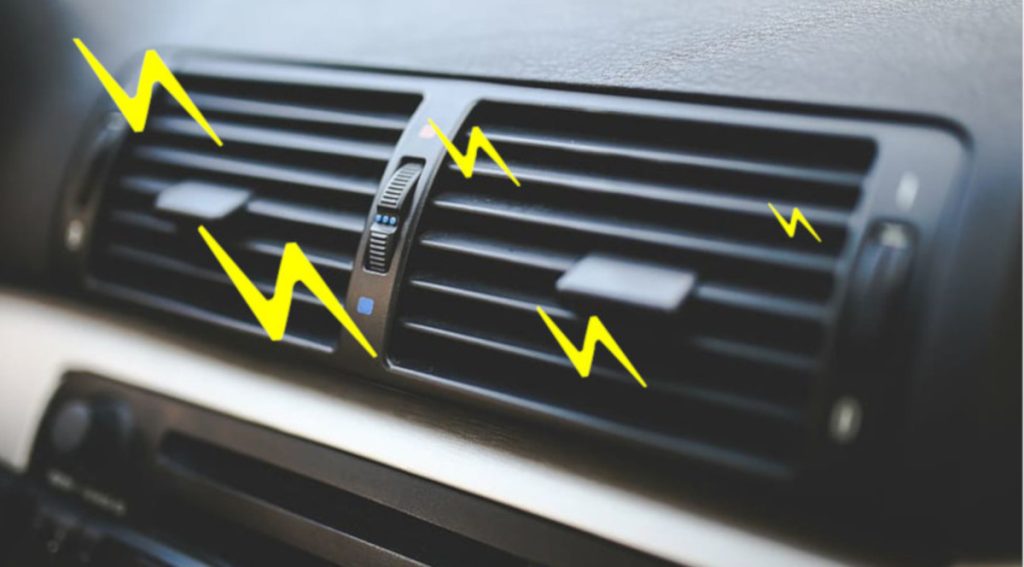Picture this: you slip into your car on a scorching summer day, eagerly anticipating the cool relief provided by your trusty air conditioning system. Yet, as you engage the AC, an unexpected scent wafts through the vents – a faint, vinegar-like odor that leaves you puzzled and perhaps a tad concerned. What could be the source of this peculiar aroma, and should you be worried about the health of your vehicle’s AC system? Fear not, for we are about to embark on a journey deep into the labyrinth of automotive air conditioning, where science meets mystery to unravel the secrets behind the infamous vinegar smell.
Peering Into the Microbial World Within Your AC System
The genesis of the vinegar smell phenomenon can be traced to the microscopic realm thriving within the intricate network of your car’s HVAC (Heating, Ventilation, and Air Conditioning) system. Here, amidst the coils, ducts, and filters, a bustling ecosystem of bacteria, fungi, and mold lurks, sustained by the perfect cocktail of warmth, moisture, and organic matter. As your AC springs to life, stirring the dormant inhabitants of this microbial metropolis, they release a cascade of volatile organic compounds (VOCs), including acetic acid – the very essence of vinegar.
Unveiling the Culprits: Bacteria, Fungi, and Mold
At the heart of the vinegar smell mystery lie the unsung protagonists of microbial proliferation: bacteria, fungi, and mold. These tiny but tenacious organisms thrive in environments characterized by high humidity and organic debris, finding sanctuary within the labyrinthine confines of your AC system. The evaporator core, a vital component responsible for chilling the incoming air, serves as their favored habitat, providing ample surface area and moisture for colonization. (https://outdoorlogic.net/why-does-my-car-ac-smell-like-vinegar/) As moisture condenses on the evaporator coils during operation, it creates an ideal breeding ground for microbial growth, fueling the proliferation of bacterial and fungal colonies.

The Role of Humidity, Organic Debris, and Neglect
Several factors conspire to create the perfect storm for microbial infestation within your car’s AC system:
- Humidity: Condensation within the HVAC system, coupled with ambient humidity levels, creates a moist environment conducive to microbial growth.
- Organic Debris: Dust, pollen, and other organic particles infiltrate the AC system, serving as a buffet for hungry microbes seeking sustenance.
- Neglect: Extended periods of inactivity or infrequent use of the AC system can exacerbate microbial growth, as stagnant air provides a haven for colonies to thrive undisturbed.
Health Concerns and Implications

While the vinegar smell itself may not pose immediate health risks, the presence of microbial contaminants within the AC system can compromise indoor air quality and pose potential health hazards. Inhalation of airborne pollutants emitted by bacterial and fungal colonies may exacerbate respiratory ailments, trigger allergies, and contribute to general discomfort and malaise among occupants. Furthermore, prolonged exposure to foul odors can detract from the driving experience, impairing concentration and diminishing overall vehicle comfort.
Mitigation Strategies and Remediation Techniques
To combat the scourge of the vinegar smell and mitigate microbial proliferation within your car’s AC system, a multifaceted approach is required:
- Routine Maintenance: Regular inspection and maintenance of the HVAC system, including cleaning or replacement of the cabin air filter and evaporator core, are paramount to preventing microbial buildup and preserving air quality.
- Proper Ventilation: Allowing fresh air to circulate through the vehicle’s interior when the AC is not in use can help reduce humidity levels and deter microbial growth.
- Cabin Air Filters: Installing high-efficiency cabin air filters can serve as a barrier against airborne contaminants, preventing organic debris from infiltrating the AC system and fostering microbial colonization.
- Professional Cleaning: In cases of severe contamination or persistent odor, professional cleaning and disinfection of the AC system may be necessary to eradicate microbial colonies and restore pristine air quality.
Navigating the Maze of Microbial Mysteries
The vinegar smell phenomenon serves as a poignant reminder of the hidden world teeming within our vehicle’s AC systems, where microbial communities thrive in the shadows. By understanding the complex interplay of environmental factors, microbial biology, and automotive engineering, we can unlock the secrets behind this enigmatic odor and take proactive steps to safeguard the health and comfort of both our vehicles and their occupants. Through diligence, maintenance, and a dash of scientific insight, we can banish the vinegar smell from our automotive adventures, ensuring smooth sailing on every journey.

